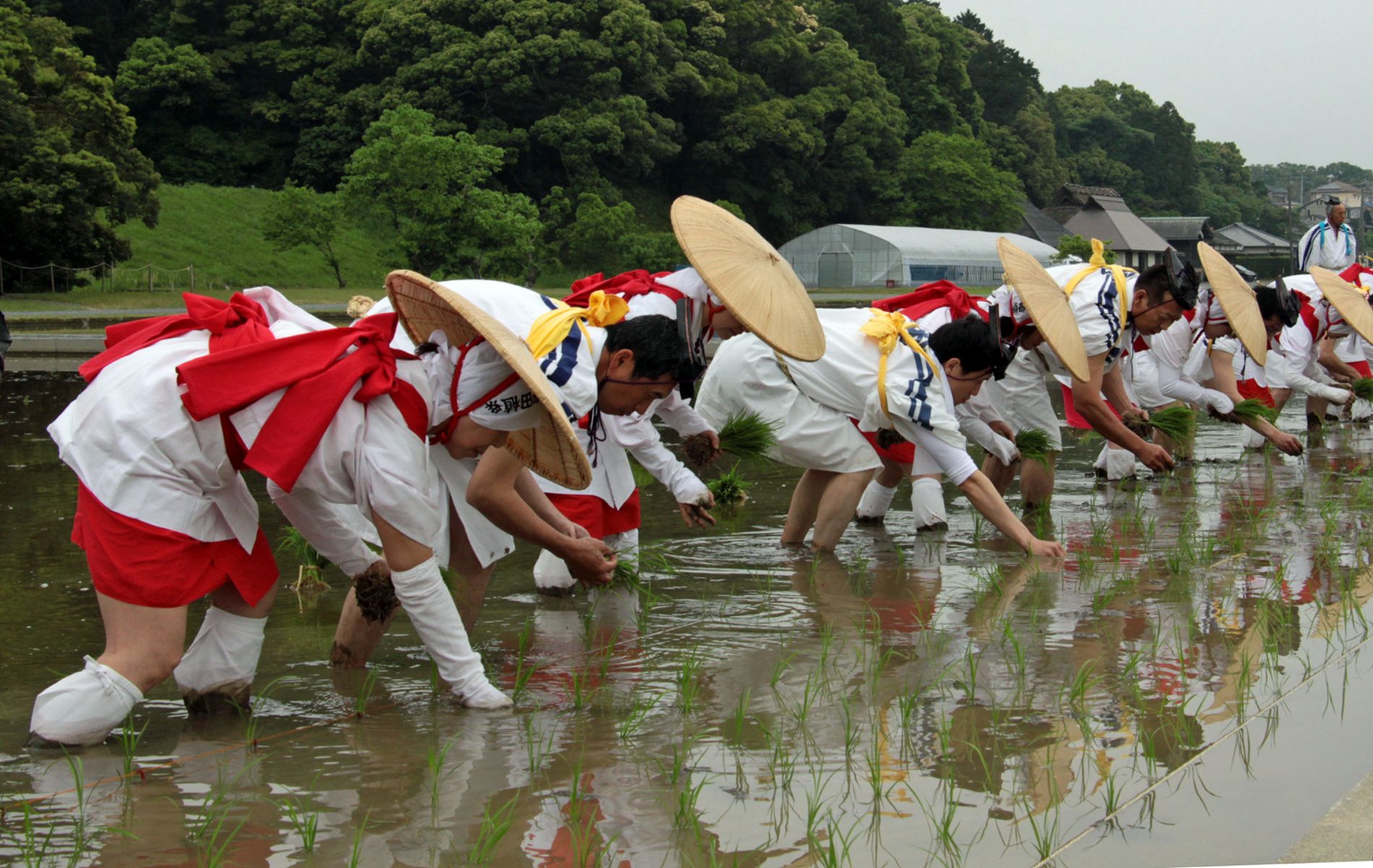
A seasonal gathering with food to celebrate friends and family (©Daniel Moore)
As a tour guide, I am a window to Japanese culture, explaining the history and culture so travelers understand the "whys" of Japan. With so much etiquette, tradition, and formality, visitors are often intimidated by Japan and fear committing faux pas. Fear not, though. Understanding a few basic etiquette items is most of the battle.
People appreciate effort far more than the absence of mistakes. And when in doubt, look around. That's even how Japanese parents educate their kids. Understanding why Japan is a certain way also helps you better understand the culture, immerse yourself in the experience, and relax because you have a few tricks up your sleeve.

'Itadakimasu'
Itadakimasu is a quintessential Japanese pre-meal phrase meaning "I will humbly receive." Humbly is important because the verb itadaku places the speaker in a lower position, receiving something from someone above them.
Bon Appetit in French is the closest tradition to saying itadakimasu. But, true to form, the French say it to remind themselves to indulge in the moment, not to thank anyone in particular. In religious traditions, saying grace is a long way of saying itadakimasu.
Indeed, itadakimasu also has religious significance. When receiving food, the beneficiary would place the food above the head, gesturing that the gift is from the gods. That gesture of receiving the food with two hands became today's simplified itadakimasu motion of clasping the hands together before every meal.

A Gesture of Respect
Saying itadakimasu before each meal reminds one to thank the people who made the food and the plants or animals that sacrificed to become it. Shinto is more of a belief system than a religion, but its basic tenet is that kami, or spirits, are in everything. The ancestors are kami, as are mountains, rivers, waterfalls, ancient trees, massive rocks, and of course, food, especially rice.
Shinto has no religious text, moral code, or regular religious meetings. Indeed, it doesn't require much from its followers except showing respect where it is due. Understanding that concept alone explains much of Japanese culture. Just show some basic respect, and you will do fine.
Avoiding Food Waste
Due to respect and lean times during the war, historically, leaving even a grain of rice was a taboo in Japan. I remember a cartoon from my childhood about a Ninja training school called Nintama Rantaro. The picky eater would get yelled at by the lunch lady for leaving his veggies. She was the most memorable character on the show because she was so scary.
There is still a strong reluctance to waste food in Japan, citing "mottainai."The word, mottainai means "what a waste" and is used whenever something is needlessly wasted.
In a uniquely Japanese manner, some restaurants even get angry when you waste the food you ordered. Even though it means more revenue, they prefer customers to order less and waste less. While Americans don't intentionally waste food, there is more scale, recklessness and carelessness regarding waste.
Japan is imperfect; it has an 'Itadakimasu culture' but is also not immune to careless affluence. Food is largely abundant in Japan, and the Japanese are more willing to waste food than before, which is an unfortunate development. There is hope, though.

Appreciation from an Early Age
My son recently started attending an international preschool where they speak English and Japanese. I assumed the teachers would say itadakimasu at mealtimes, without attempting to translate the phrase into English. After all, what 2-year-old says, "I humbly receive this food?"
To my surprise, one day at dinner, he blurted out a phrase in one Japanglish sentence, almost singing. "Itadakimasu, thank you for the food."
I like that translation because it captures the essence of Itadakimasu culture, being thankful for the food. It's a reminder that many people work hard to provide a meal, and lives are sacrificed to make ours possible. I'm not vegetarian and can't debate ethics here, but everyone has to kill something to live.

In Business and in Life
Like many aspects of Japanese culture, Itadakimasu culture affects me deeply. I feel terrible leaving food at a banquet-style kaiseki meal, so I usually skip breakfast in preparation. I especially feel the glare of mottainai when I leave a whole fish or shrimp untouched. This creature lived its entire life to reach my dinner plate, just for me to throw it in the trash.
In business and in life, itadakimasu is a good reminder to be thankful for the people, customers, clients, companies, and relationships that make living, working and earning a living possible.
To remember long Japanese phrases, I give people an English equivalent that sounds like the phrase. So, sumimasen (Excuse me) becomes "Sue Me, My Sin," and doitashimashite (You're welcome) becomes "Don't Touch My Moustache."
I'm especially fond of my phrase for Itadakimasu, "Eat A Duck I Must," because the meaning is somewhat similar. Imagine a giant duck feast and how hungry you are next time you can't remember itadakimasu. I still haven't found a food phrase for itadakimasu's post-meal equivalent, Gochisosamadeshita. This word means I have feasted, and is said to thank the cook, restaurant, or host for the meal. If you have any good ideas, I'm open to suggestions.
RELATED:
- New Documentary Explores Education In 'The Making of a Japanese'
- INTERVIEW | Why I Fell in Love With Japanese Craft with Nichole Fiorentino of Ecuador
- Going Green at Osaka Expo: New App Makes Reducing Your Carbon Footprint Fun
Author: Daniel Moore
Learn more about the wild side of Japan through Daniel's essays.






